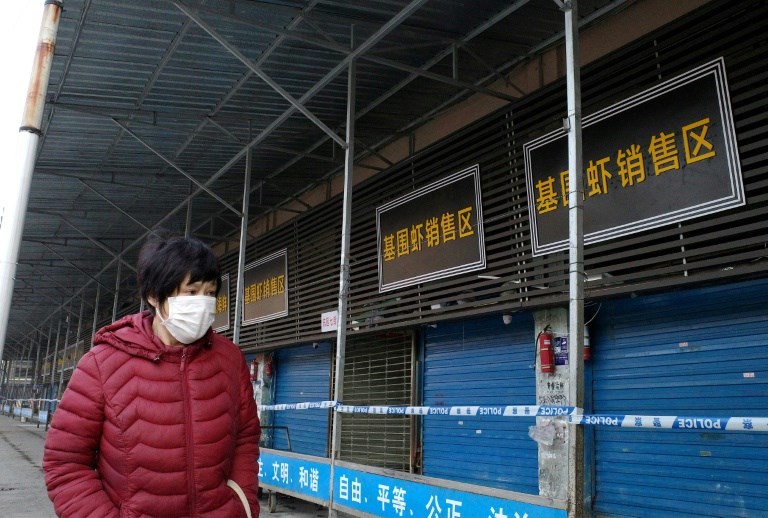A new virus from the same family as the deadly SARS pathogen could have been spread between family members in the Chinese city of Wuhan, local authorities said Wednesday.
The outbreak, which has killed one person, has caused alarm because of the link with SARS (Severe Acute Respiratory Syndrome), which killed 349 people in mainland China and another 299 in Hong Kong in 2002-2003.
One of the 41 patients reported in the city could have been infected by her husband, Wuhan's health commission said in a statement on Wednesday.
The announcement follows news that a Chinese woman had been diagnosed with the novel coronavirus in Thailand after travelling there from Wuhan.
No human-to-human transmission of the virus behind the Wuhan outbreak has been confirmed so far, but the health commission said the possibility "cannot be excluded".
The commission said that one man who had been diagnosed worked at Huanan Seafood Wholesale Market, which has been identified as the centre of the outbreak, but his wife had been diagnosed with the illness despite reporting "no history of exposure" at the market.
At a press conference on Wednesday following a fact-finding trip to Wuhan, Hong Kong health officials also said that the possibility of human-to-human transmission could not be ruled out despite no "definitive evidence".
Dr Chuang Shuk-kwan, from Hong Kong's Centre for Health Protection, said there were two family group cases among the recorded cases in Wuhan, including the husband and wife and a separate case of a father, son and nephew living together.
However, he said mainland doctors believed the three men were most likely to have been exposed to the same virus in the market.
The market has been closed since January 1.
The woman diagnosed in Thailand, who is currently in a stable condition, had not reported visiting the seafood market, the World Health Organization (WHO) said on Tuesday.
WHO doctor Maria Van Kerkhove said Tuesday that they "wouldn't be surprised if there was some limited human-to-human transmission, especially among families who have close contact with one another".
The US Centers for Disease Control and Prevention issued a Level 1 "Watch" alert for travellers to Wuhan after the patient was diagnosed in Thailand, saying they should practice normal precautions and avoid contact with animals and sick people.
Wuhan's health commission said on Wednesday that most of the patients diagnosed with the virus were male, and many were middle-aged or elderly.
In Hong Kong, hospitals have raised their alert level to "serious" and stepped up detection measures including temperature checkpoints for inbound travellers.
Hong Kong authorities said on Tuesday that the number of people hospitalised with fever or respiratory symptoms in recent days after travelling to Wuhan had grown to 71, including seven new cases since Friday.
Sixty of that total, however, have already been discharged. None have yet been diagnosed with the new coronavirus.



